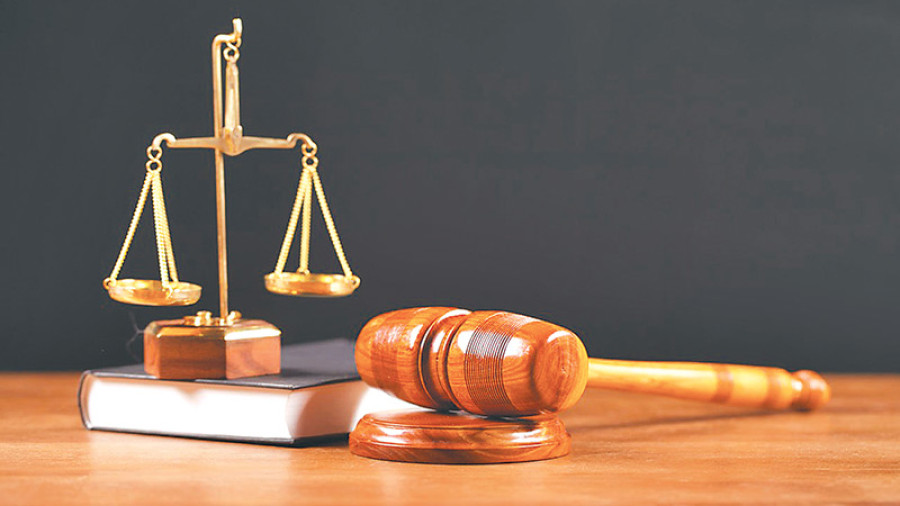Opinion
Just a minute, Your Honour
Are Dr Govinda KC’s statements an attack against the chief justice or the judiciary?
Prakritee Yonzon
The contempt of court proceedings against Dr Govinda KC for his statements against Supreme Court Chief Justice Gopal Parajuli have raised a plethora of issues, and a much needed discourse on what constitutes contempt of court, in fact, and in law. One of the main issues that need to be examined more closely is the conflict between the individual and the institution. The questions that need to be addressed are: Are the allegations against the chief justice tantamount to allegations against the institution of the judiciary? Is there a difference between allegations against a judge and the judiciary? Further, does it differ when these allegations are made against a single judge or against the chief justice?
Contempt has now been broadly classified as civil and criminal contempt. In simple terms, disobeying an order of the court would fall under civil contempt while making any statements that may affect the administration of justice would fall under criminal contempt. It is interesting to note that criminal contempt in the UK does not recognise scandalising the court as an offence. The Report of the Law Commission of 2012 defines scandalising the court as a form of contempt of court, consisting of the publication of statements attacking the judiciary and likely to impair the administration of justice.
Blurred lines
The report concludes that the offence of scandalising the court is, in principle, an infringement of the freedom of expression that should not be retained without strong principled or practical justification. But what is of extreme importance is that the report states that it is customary to emphasise that the offence of scandalising exists to safeguard the integrity of the judicial system rather than the personal dignity of the judges. It further recognises that there is, nevertheless, something inherently suspect about an offence both created and enforced by judges which target offensive remarks about judges. In India, scandalising the court is still a powerful weapon that the judiciary can use should the media ‘misbehave’. However, the distinction between the judge and the judiciary is often blurred, and the inclination of the judiciary is to proceed with contempt proceedings against anything that it interprets may tarnish the image of the court.
Coming back to home ground, we now have more questions than answers. It is necessary to examine whether the statements made by Dr KC are a personal attack against Chief Justice Parajuli or the judiciary. Further, can the integrity of a judge, or in this case, the chief justice, be separated from the institution of the judiciary? In the present case, since the integrity of the judge in question is being attacked, inter alia, in relation to his judicial conduct and the determination of the case of medical colleges and administration, the answers may not be as straightforward as we would like.
Accountability concerns
Another important question is whether Dr KC’s allegations represent public opinion. If the allegations are indeed representative of public perception, then the judiciary needs to reconsider the gravity of the allegations and immediately take action for reformation. A report published by Transparency International a decade ago states that the judiciary is perceived to be one of the most corruption-afflicted sectors in the country. Has there been much change since then? If, on the other hand, the allegations are not representative of public opinion, it may be insightful to understand the views espoused by a UK judge: Public confidence is not placated by prosecuting the party making the allegations and, in fact, the procedure itself may be seen as seeking to conceal wrongdoing.
Indeed, the issue of being able to criticise a judge in his capacity is intertwined with the concerns of accountability. In a system where judges are appointed and not elected, how do we promote accountability? In this light, it is again necessary to examine whether the statements made by the legal fraternity, and more importantly, the Nepal Bar Association, have strengthened or undermined the independence of the judiciary. The Judicial Council Act 1991 provides for a mechanism to initiate an investigation and assess the competence of the judges for this purpose. The bigger question, however, is whether the use of the present mechanisms and those provided in the constitution, such as the judicial council and the constitutional council, have led to enhancing public faith in the judiciary.
If we are to strive towards a healthy democracy, we need the freedom to be able to criticise, comment and express our opinions. The media may report the good, the bad and the ugly; but the judiciary itself also has an obligation to walk the talk, as identified within the parameters of our constitution. Institutions such as the judiciary, which actually run on public faith, need to do more than defend and press contempt charges to earn and maintain its own dignity and integrity. We need to understand the basis for contempt and how it can be used fairly in context for, in an ideal world, comments would be truthful, fair and supported by empirical means. In our world, however, such matters are for the courts to determine, not only for this particular case, but also for the future.
Yonzon is a Lecturer at the Kathmandu University School of Law, Dhulikhel, Kavre




 14.12°C Kathmandu
14.12°C Kathmandu










